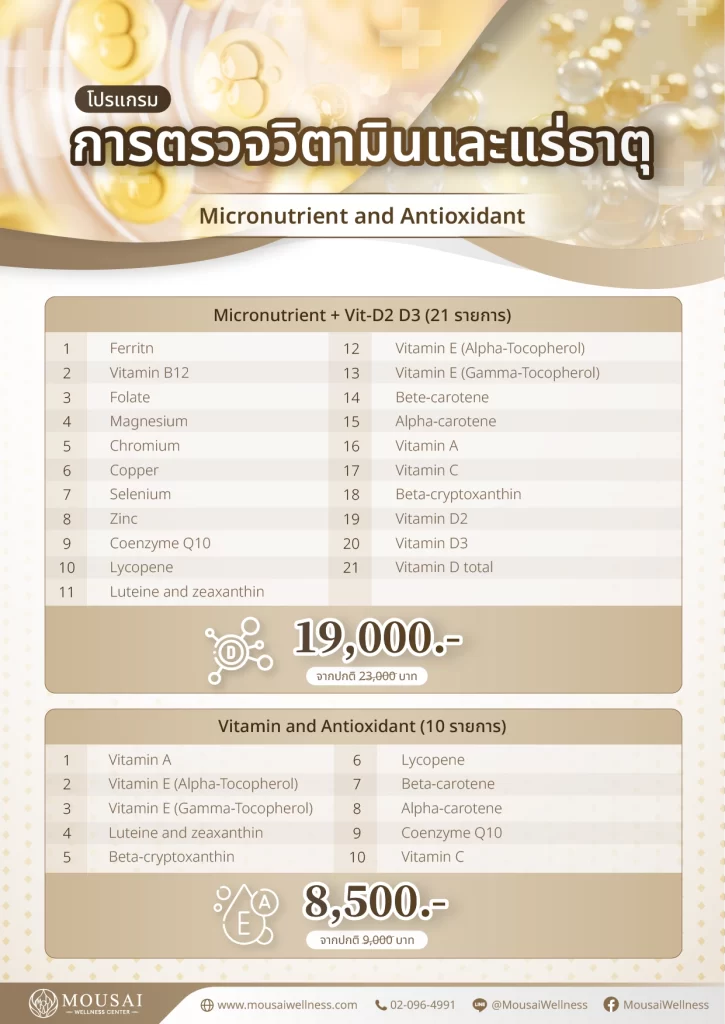Why Test Your Micronutrient Levels?
- Helps tailor a balanced intake of vitamins, minerals, and antioxidants.
- Guides personalized supplement plans based on individual needs.
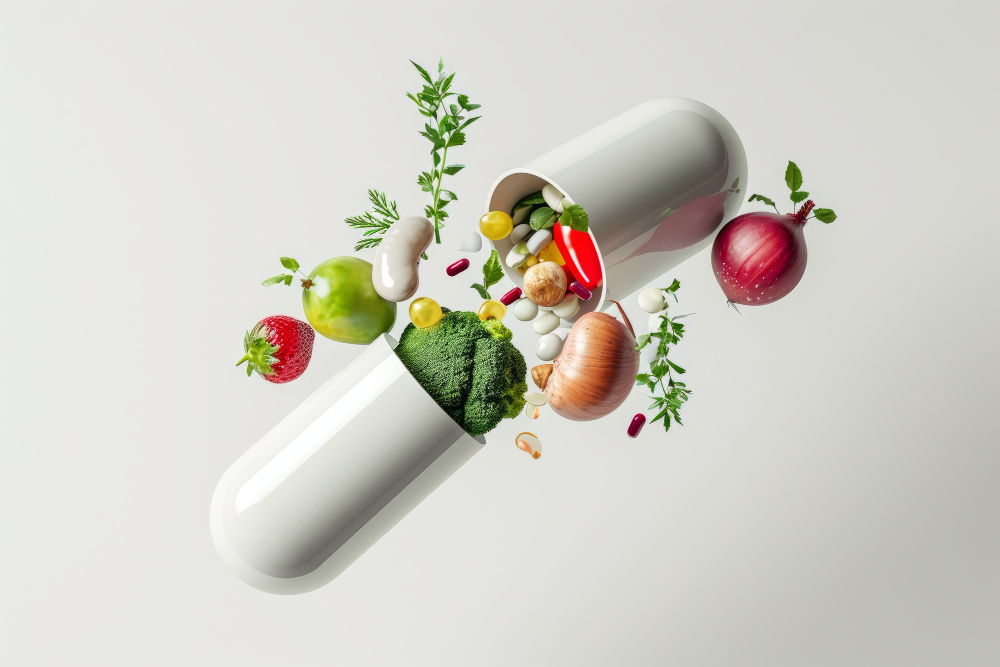
Micronutrients are essential vitamins and minerals that the body requires in small amounts but cannot function without. Since the body cannot produce them in sufficient quantities, they must be obtained through food or supplements.
These vital nutrients support various bodily functions, including metabolism, enzyme regulation, and overall health. However, an imbalance—whether deficiency or excess—can have negative effects.
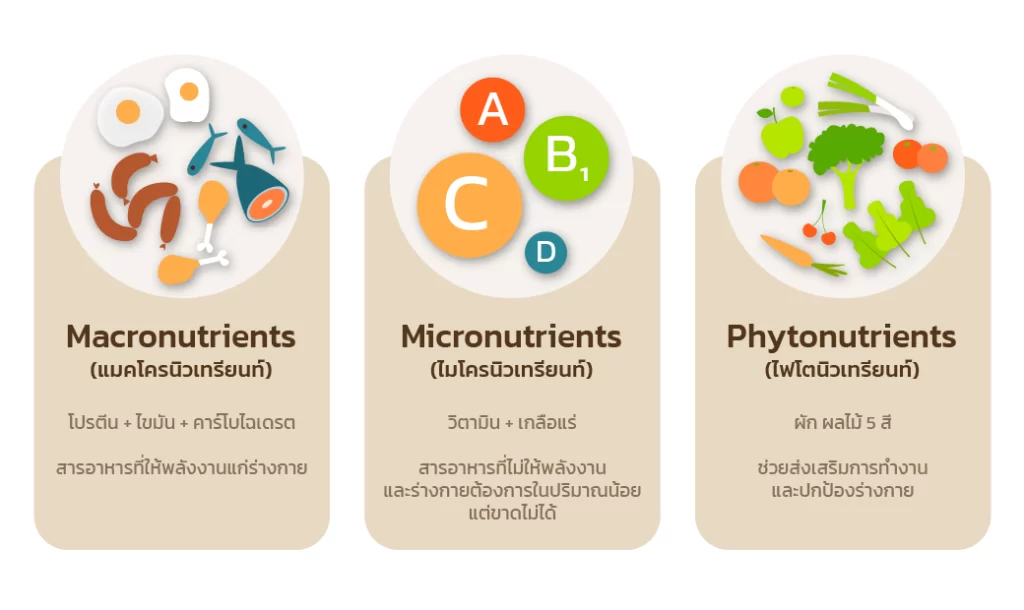

This test analyzes 21 essential vitamins and minerals to help you develop a personalized health plan. The following micronutrients are included:
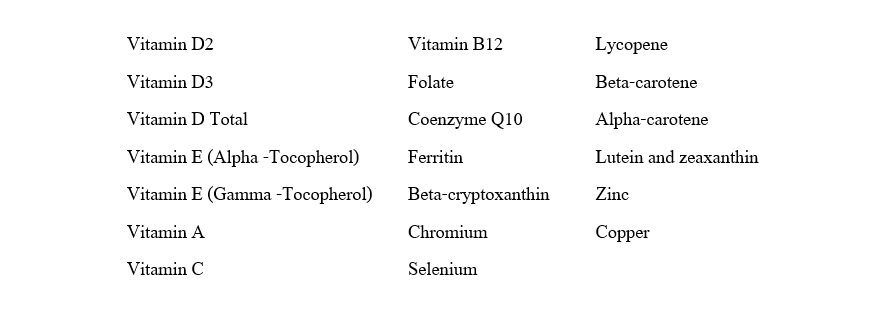
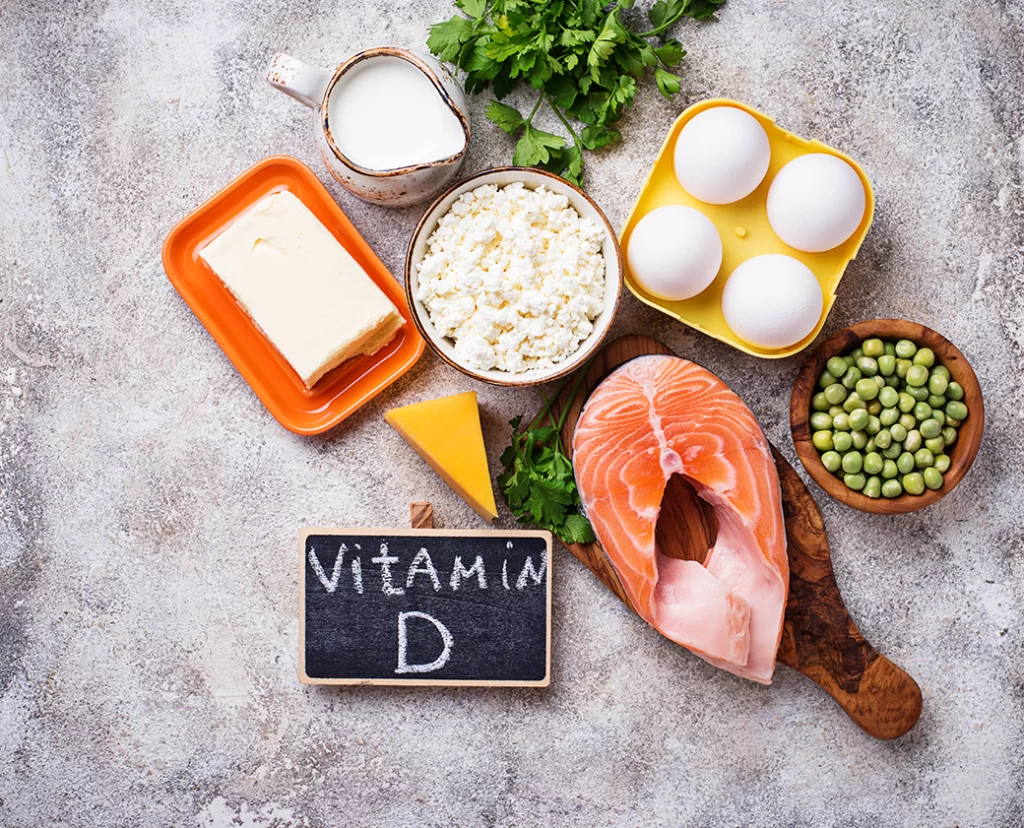
Essential for bone strength, muscle function, and immunity. Vitamin D2 comes from plant-based sources, while D3 is derived from animal-based sources. Sunlight, food, and supplements contribute to vitamin D levels.
A powerful antioxidant that supports heart health, circulation, and immune function. Alpha-Tocopherol promotes skin health and blood flow, while Gamma-Tocopherol helps reduce inflammation and protect against age-related diseases.
Crucial for vision, immune function, and cell growth. It helps improve night vision and reduce the risk of macular degeneration. Found in foods like liver, fish, dairy, carrots, leafy greens, and tropical fruits.
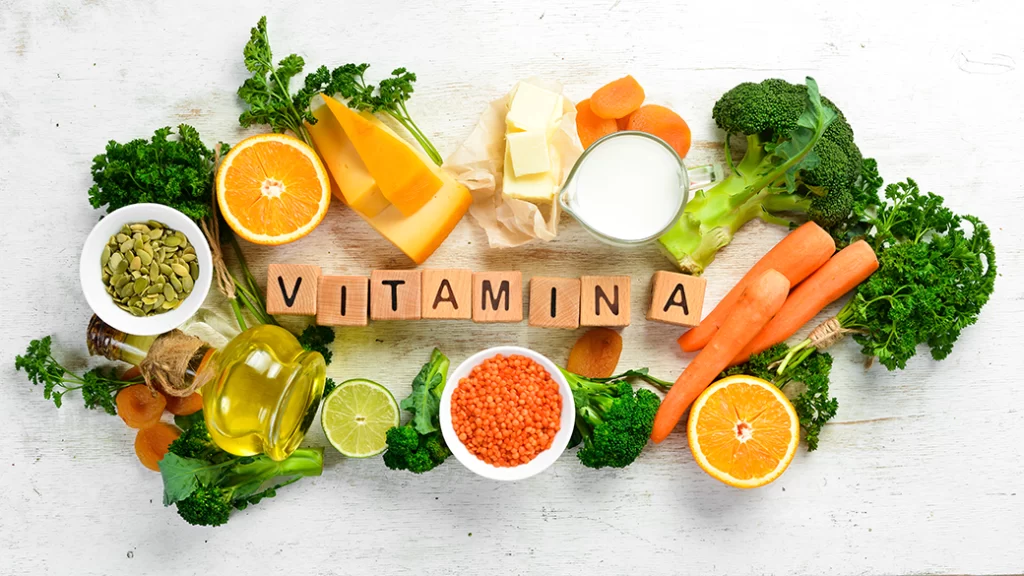
Essential for red blood cell production, brain function, and energy levels. Primarily found in meat, fish, dairy, and eggs. Vegetarians may need supplementation due to a higher risk of deficiency.
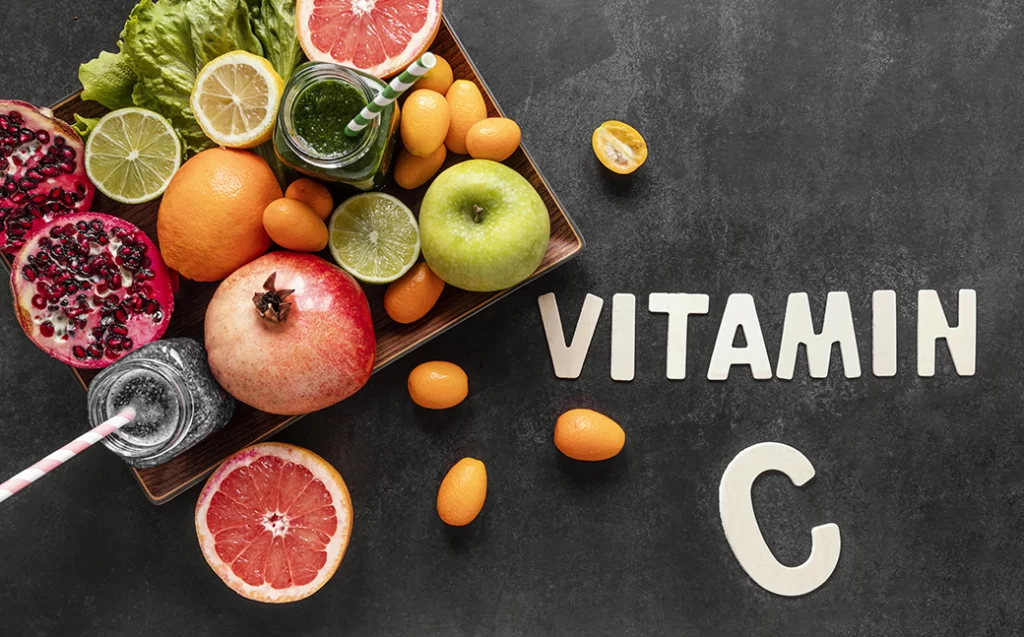
A water-soluble vitamin that boosts immunity, enhances collagen production, and improves skin health. Found in citrus fruits, strawberries, guavas, and tomatoes.
Regulates insulin and blood sugar levels. Excess chromium can be harmful, so balance is key. Found in potatoes, broccoli, garlic, bananas, oats, and whole grains.
Supports nerve function, muscle health, and blood pressure regulation. A deficiency can lead to headaches, fatigue, muscle pain, and, in severe cases, seizures or irregular heartbeats.
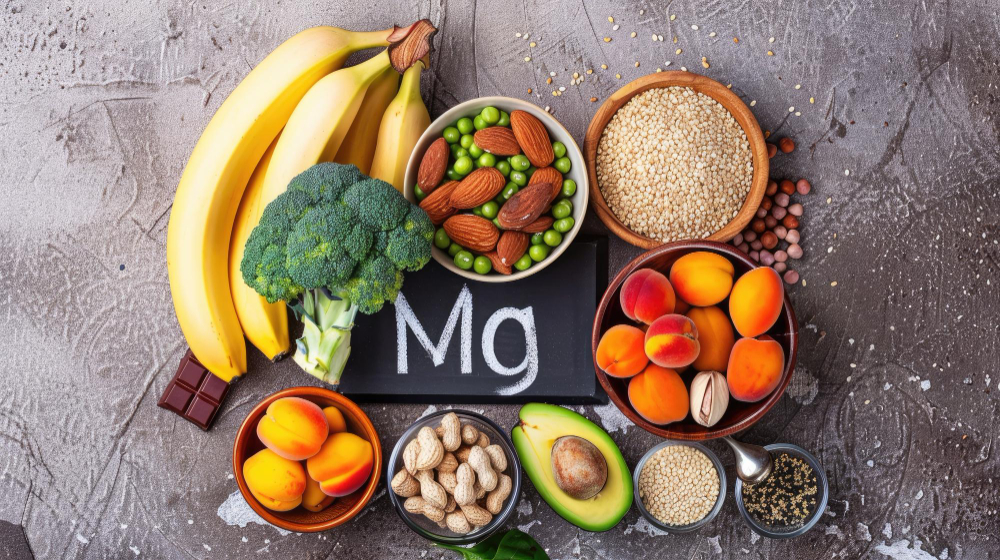
Vital for red and white blood cell production, DNA synthesis, and heart health. Helps lower homocysteine levels, reducing the risk of heart disease and stroke.
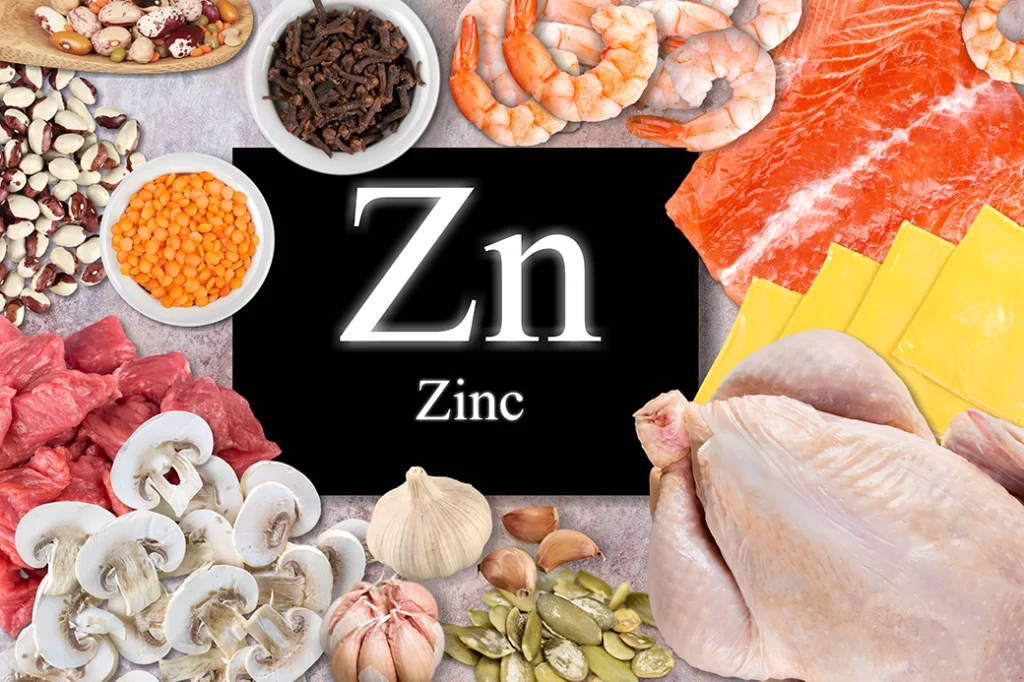
Plays a critical role in immunity, wound healing, digestion, and skin health. Since the body cannot produce it, dietary sources like oysters, seeds, nuts, and whole grains are essential.
A powerful antioxidant that supports heart health, energy production, and cell protection. It also helps regulate blood sugar levels and reduces oxidative damage linked to aging.
Supports metabolism, thyroid function, and immunity. Works alongside vitamin E to slow down aging and prevent cell damage. Found in nuts, seafood, poultry, and whole grains.
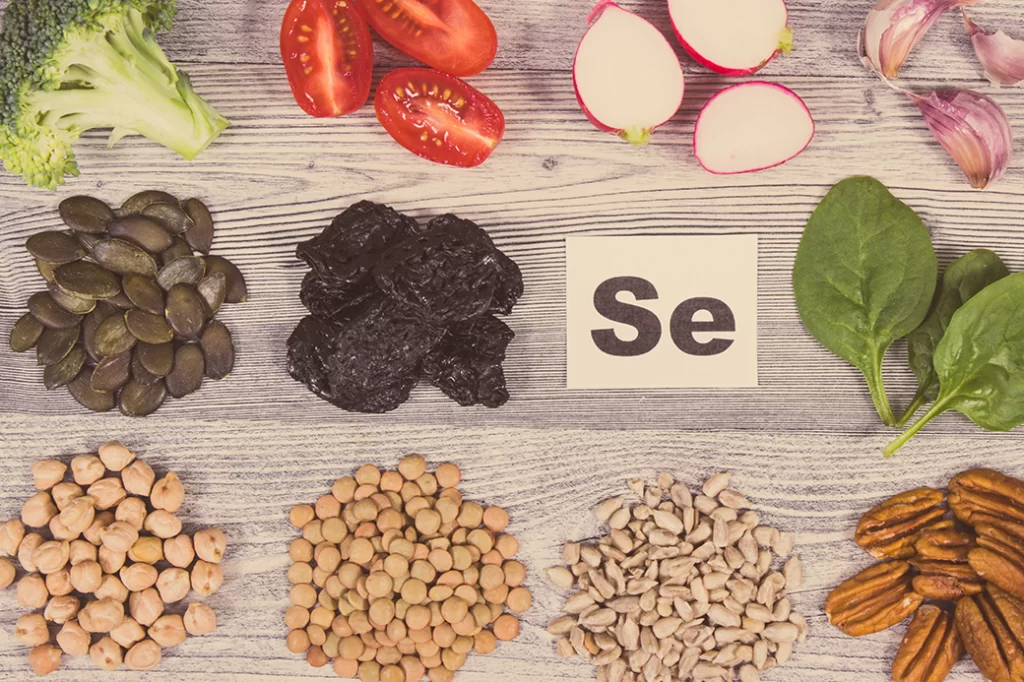
A carotenoid that helps protect cells from free radical damage and reduces inflammation, lowering the risk of certain cancers and arthritis. Found in mandarins, papayas, and bell peppers.

A potent antioxidant found in tomatoes, watermelons, and pink grapefruits. It promotes heart health, protects the skin from sun damage, and helps slow signs of aging.
The storage form of iron in red blood cells, crucial for diagnosing iron deficiency or overload. Helps assess anemia risk.
Converted into vitamin A by the body, supporting vision, immune function, and skin health. Found in orange and yellow fruits and vegetables like carrots, mangoes, and pumpkins.

A powerful antioxidant with stronger effects than beta-carotene, reducing inflammation and supporting cellular health.

Essential for bone health, immunity, and enzyme function. Found in organ meats, nuts, seeds, seafood, and dark leafy greens.
Protects the eyes from harmful UV rays and supports vision in low-light conditions. Higher levels are linked to better eye health and reduced risk of macular degeneration.
By understanding your body’s micronutrient levels, you can optimize your health, enhance energy levels, and prevent deficiencies. A targeted approach to vitamins and minerals ensures that you get exactly what your body needs—nothing more, nothing less!
